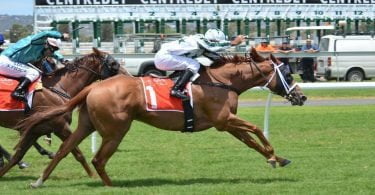Honesty, in most walks of life, is considered a virtue. Why, then, does this not appear to be the case within football?
Honesty, in most walks of life, is considered a virtue. Why, then, does this not appear to be the case within football? Is it merely a case of a will to win, to do whatever it takes to ensure victory, clouding moral sense, taking precedent over justice? I’m not so sure. It almost certainly began as such, however, these days it has become commonplace within football at all levels. Those players who act with honesty are in the minority. Players do it because they can, because they’ve been conditioned to act that way, because everyone else does, because, if they didn’t, it would represent a missed opportunity.
Now, it’s easy to criticise football, and plenty do, however, that’s not my intention. Human error is a massive part of the beautiful game. Advocates of video technology are constantly told this, with cynics offering a view that it’d slow games down, that removing human error removes an exciting aspect of a football match. Some of my most memorable experiences at football matches have been brought about by my team, Lincoln City, battling back in the face of adversity; winning games in spite of poor refereeing performances, players diving, wrongly disallowed goals, and so on, gaining victory despite the dishonesty of their opponents, if you will. Fans finding someone to ‘hate’, to view as an almost pantomime-like villain, adds to the atmosphere of a match-day, whether it’s an opponent who has been viewed to be cheating, or a dodgy referee.
This argument for honesty within football was dragged up again recently, due to the actions of a player that the British public – with the exception of Liverpool fans – love to hate: Luis Suarez.
Suarez is often labelled a cheat, and the latest uproar caused by his on-the-pitch actions stemmed from a goal that turned out to be the winner in an FA Cup game against non-league minnows, Mansfield Town. Suarez, apparently inadvertently, controlled the ball with his hand, before sticking the ball in Mansfield goalkeeper Alan Marriott’s net. Marriott and his teammates were outraged. However, the referee remained unmoved and gave the goal.
The ‘handball’ incident was a tricky one to call. If Suarez was a defender, and a penalty was given against him for handling the ball inside his own penalty area, it would almost certainly be labelled as harsh. Suarez was very close to the ball when it was fired at him, and his arm movement seemed like a natural reflex – ‘instinctive’, as the Mansfield manager, Paul Cox, stated after the game. It was, truly, a decision that could have gone either way, depending on your perception (and the level of your bias, it seems).
Ultimately, the decision was the referee’s, not Luis Suarez’s. So why is Suarez shouldering the blame, and being labelled a cheat? His ‘cheating action’ seems to be his refusal to approach the referee and tell him the ball had, in fact, hit his arm. This is madness, when you consider the number of wrong decisions given every week, at every level of the game. On New Year’s Day, in Grimsby Town’s Blue Square Premier local derby against Lincoln, Grimsby’s loanee defender Nathan Pond knew that the ball had crossed the line for a crucial Lincoln goal. By his own admission, he’d punched the ball away in frustration, as he expected it to be given, however, the referee was having none of it; no goal, and no penalty for handball.
Was that Pond’s fault? Of course not. However, if he was honest, he could have told the referee that it had crossed the line. Failing that, he could have owned up to handling the ball, but claimed it to have been before it crossed the line. Yes, he’d have been sent off, and Lincoln would have had a penalty, but it would have been fair, wouldn’t it? The chances are that Pond would have been torn apart by his team-mates, his manager, and his fans, had he explained the truth to the referee.
The difference between the Pond incident, and the Suarez one, is minimal. The way in which Suarez stuck the ball into net seemed to be the actions of someone who expected the goal to be ruled out; his version of Pond’s ‘frustrated punch’, I suppose, whereas the difference between the reaction of the public to the two incidents is humongous. Of course, more people care about Liverpool, the Premier League giants, than lowly Lincoln City. However, had it been any other Liverpool player, the referee would have been the one lambasted for spoiling Mansfield’s big day. It could be argued that Suarez has made a rod for his own back, which is a view that I accept, given his perceived penchant for diving, however, on this occasion I’m backing him.
A lack of honesty is part and parcel of the modern game, and singling out Suarez simply won’t change things. Video referees probably will, but it’ll lead to a sterilised version of the game that I’m not sure will have the same impact, or create the same talking points.
What do you think of the Suarez and Pond decisions? Are they cheats? Have your say in the comments section below, on Facebook or on Twitter.








